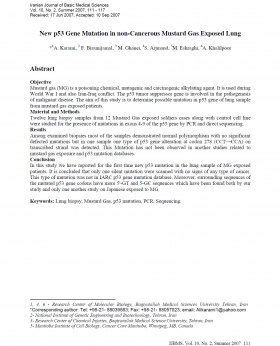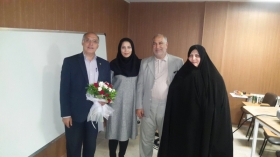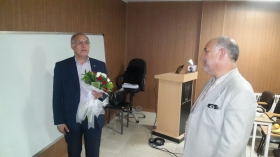New p53 Gene Mutation in non-Cancerous Mustard Gas Exposed Lung

A. Karami, F. Biramijamal, M. Ghanei, S. Arjmand, M. Eshraghi, A. Khalilpoor
ABSTRACT: Mustard gas (MG) is a poisoning chemical, mutagenic and carcinogenic alkylating agent. It is used during World War I and also Iran-Iraq conflict. The p53 tumor suppressor gene is involved in the pathogenesis of malignant disease. The aim of this study is to determine possible mutation in p53 gene of lung sample from mustard gas exposed patients. Material and Methods Twelve lung biopsy samples from 12 Mustard Gas exposed soldiers cases along with control cell line were studied for the presence of mutations in exons 4-9 of the p53 gene by PCR and direct sequencing. Results Among examined biopsies most of the samples demonstrated normal polymorphism with no significant defected mutations but in one sample one type of p53 gene alteration at codon 278 (CCT→CCA) on transcribed strand was detected. This Mutation has not been observed in another studies related to mustard gas exposure and p53 mutation databases. Conclusion In this study we have reported for the first time new p53 mutation in the lung sample of MG exposed patients. It is concluded that only one silent mutation were scanned with no signs of any type of cancer. This type of mutation was not in IARC p53 gene mutation database. Moreover, surrounding sequences of the mutated p53 gene codons have more 5'-GT and 5-GC sequences which have been found both by our study and only one another study on Japanese exposed to MG.
Iranian Journal of Basic Medical Sciences. 01/2007; 10:111-117.








نظرات
ارسال نظر